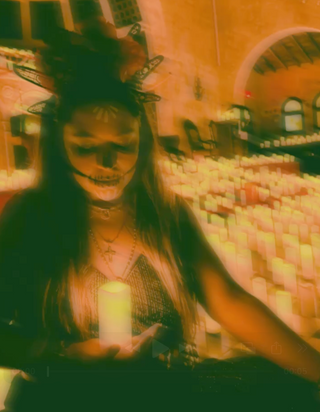For most of my life, I never understood why anyone would want to celebrate death. Growing up, the idea of Día de los Muertos felt foreign and uncomfortable. Losing my father made it even harder to imagine how joy could exist alongside grief. Death felt final, painful, and something I wanted to avoid thinking about, not honor with marigolds, music, and candles.

That perspective began to shift when I connected with a close friend who had also lost her father. She invited me to a Día de los Muertos candlelight concert, and I’ll admit, I was hesitant. But that night, surrounded by flickering candles and others embracing lost, the music felt both tender and triumphant, I realized it wasn’t about celebrating death at all. It was about remembering life. About honoring those who are no longer with us, who still live in our stories, our laughter, our traditions. And for the first time, I didn’t feel alone in my mourning. Every person there was holding space for someone they loved and lost.

A few months later, I attended a friend’s wedding in San Miguel de Allende, Mexico, which happened ON Dia de los Muertos. It was one of the most beautiful experiences I've ever had. I initially struggled to understand how a wedding and a celebration of the deceased could coexist, but I witnessed firsthand how joy and grief could live in harmony. It was a beautiful and real demonstration of starting a new chapter while honoring those who helped us get there but could no longer be with us.

The city perfectly mirrored the celebratory spirit of the occasion, bursting with vibrant colors from altars, parades, painted faces, and an abundance of flowers. Yet, beneath this joyous celebration lay a profound sense of reverence, underscoring that celebration is a powerful tribute to those who came before us.

Now, Día de los Muertos holds a new meaning for me. It isn’t just about mourning what I’ve lost, but about celebrating the love, the legacy, and the memories my father left behind in union with others.
Because the truth is this: celebration is for both the living and the dead.
XO, Rumbita


Cindy Gonzalez
That candlelight night was truly special. I’ll never forget the feeling in that room, it was so full of love, light, and connection. I’m grateful we shared that moment together and even more grateful for how it brought us closer ❤️✨